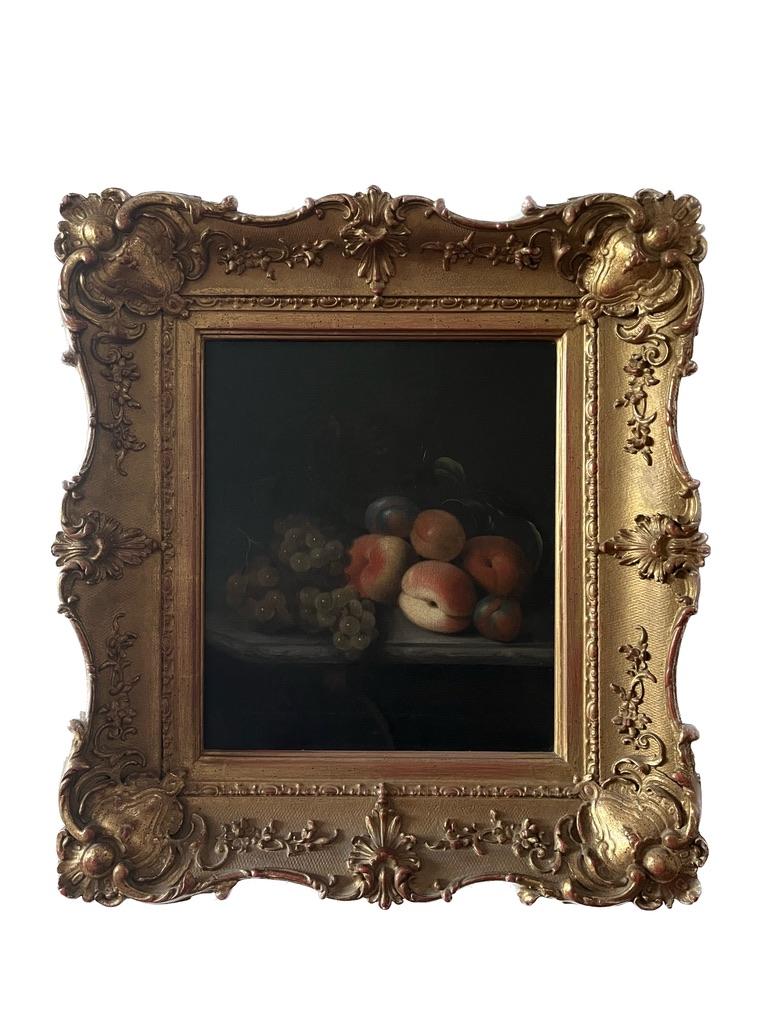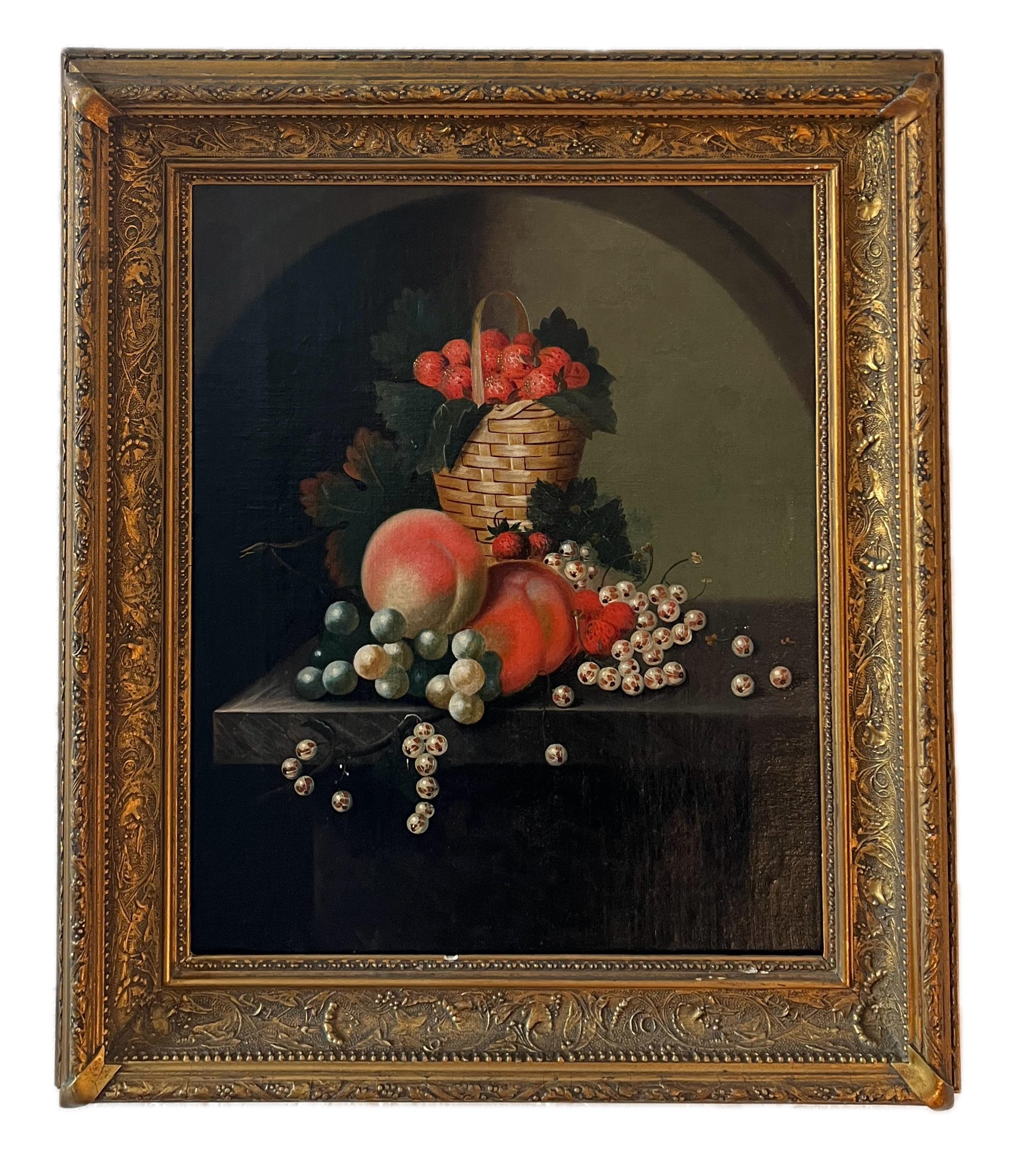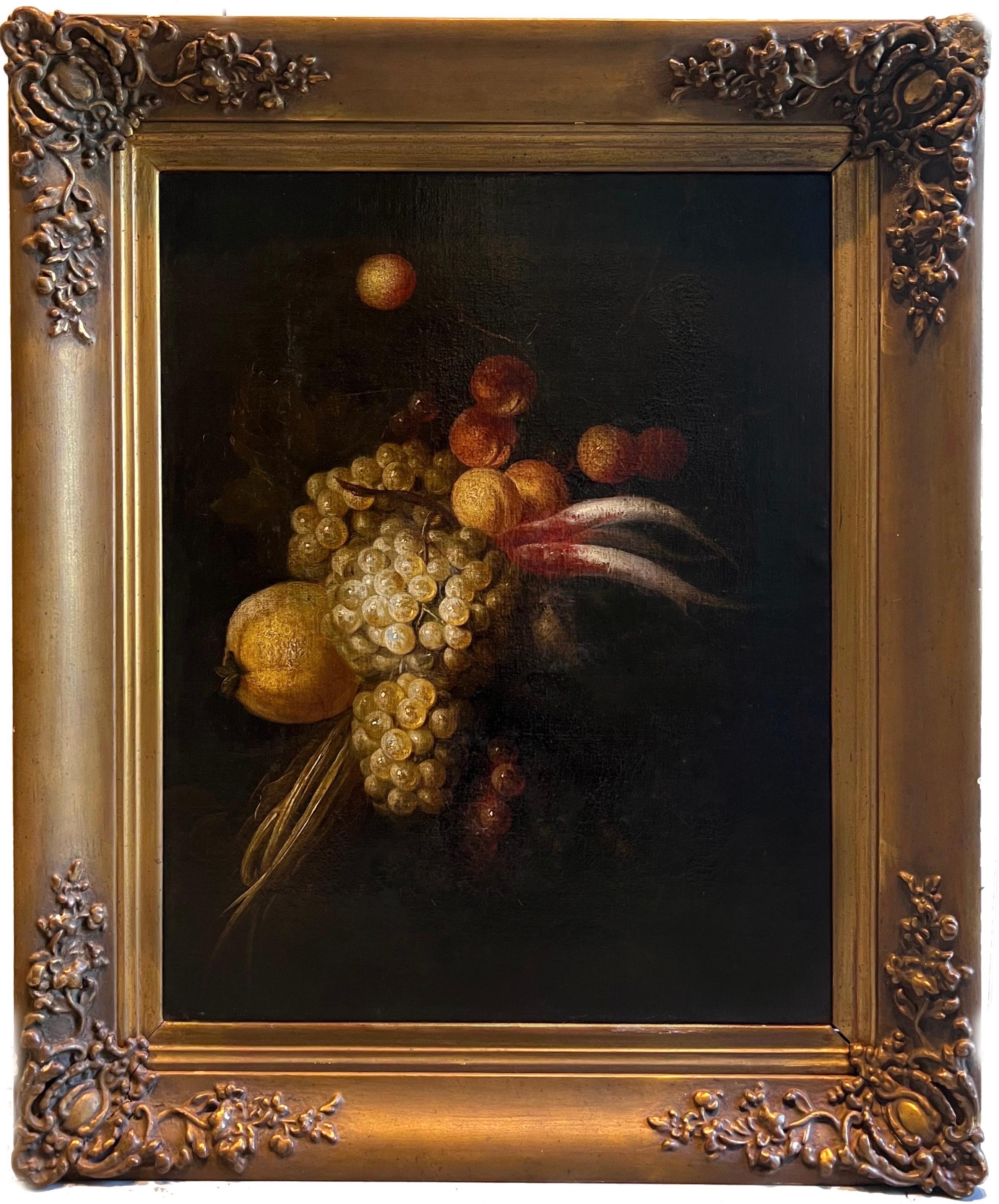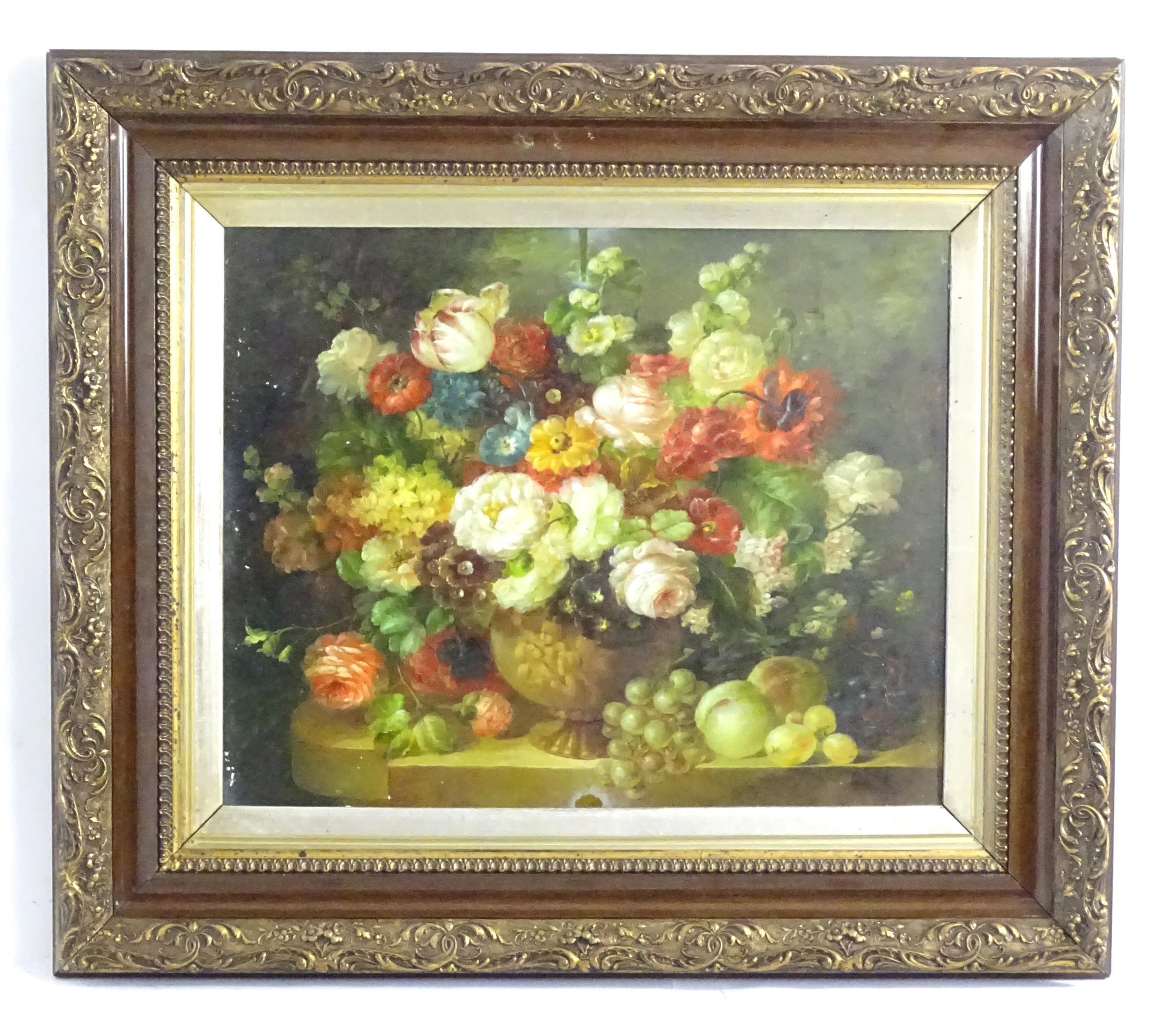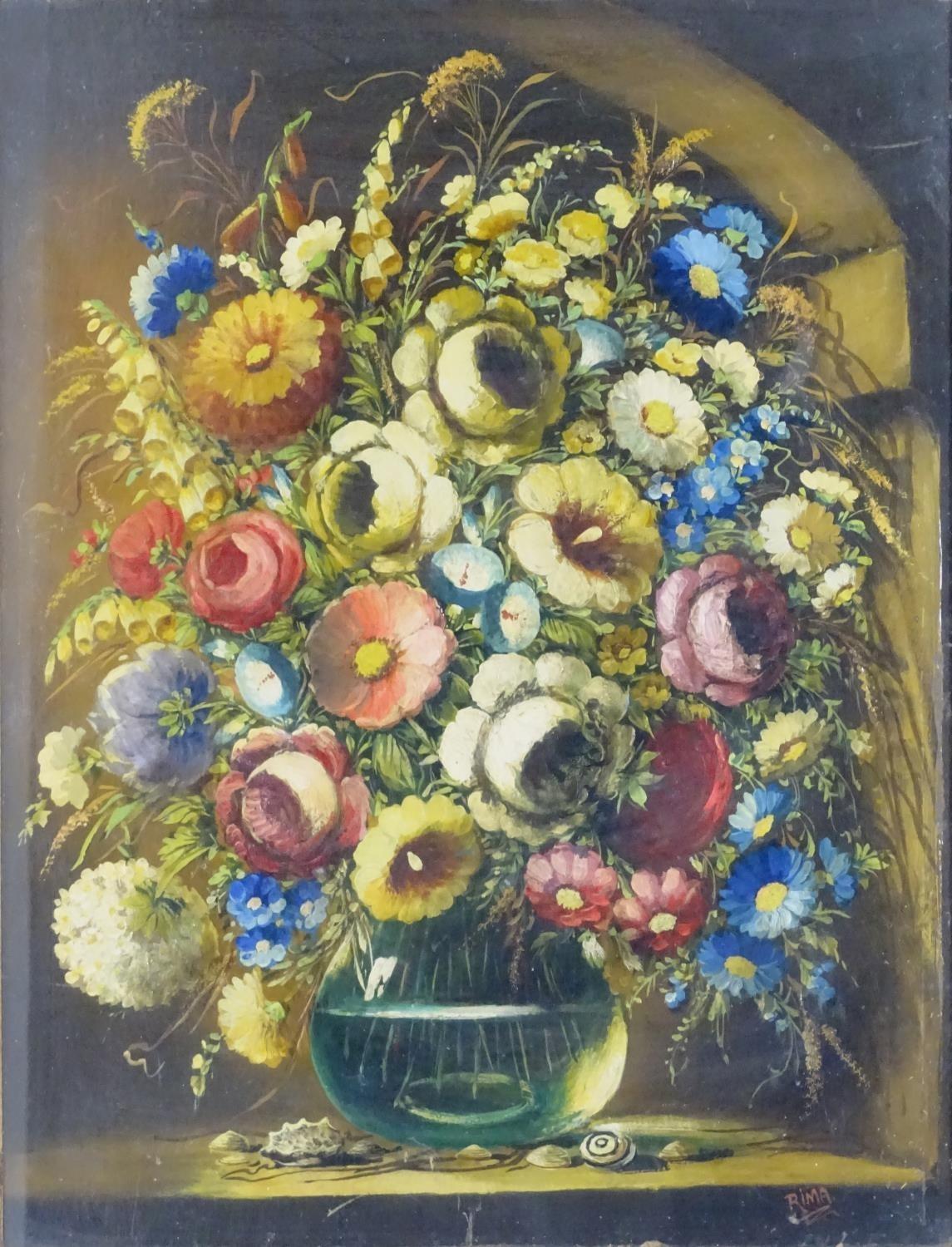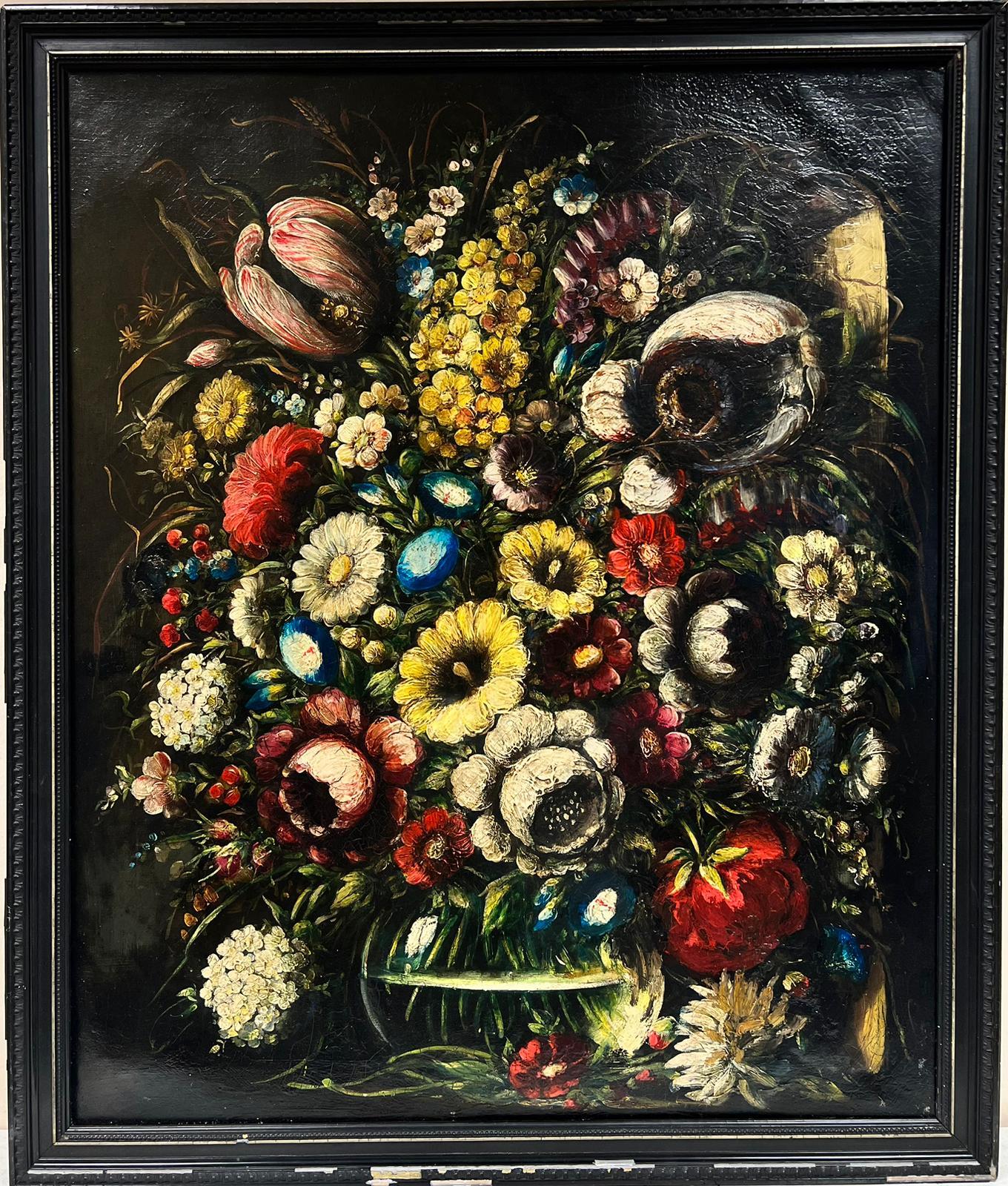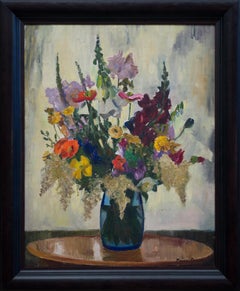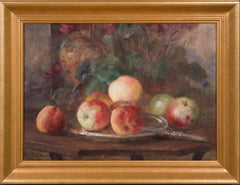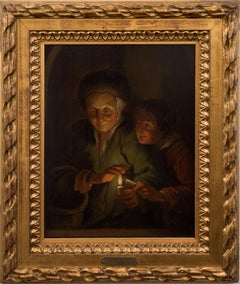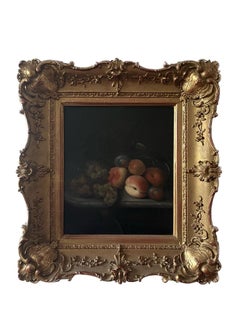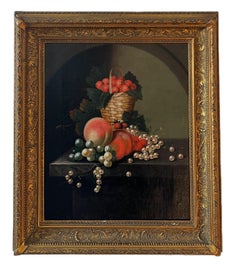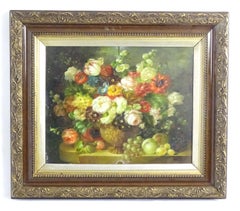Articoli simili a Still Life with Oysters - The earliest known still life in Swedish art history
Vuoi altre immagini o video?
Richiedi altre immagini o video al venditore
1 di 13
Govert Dircksz CamphuysenStill Life with Oysters - The earliest known still life in Swedish art historyc. 1652–63
c. 1652–63
Informazioni sull’articolo
This previously unpublished painting was first securely attributed to Govert Dircksz Camphuysen in 1944, following an examination at the Nationalmuseum in Stockholm during which the artist’s signature was discovered. As this attribution was not known to Bengt Rapp, the painting is not included in his thorough survey of the artist’s life and work during his Swedish period (1652–63), published in Djur- och Stilleben i karolinskt måleri (1951, pp. 15–26). The work is of considerable art historical importance. Alongside another undated still life by Camphuysen, Still Life with Provisions and a Cat (formerly in the De Geer collection at Finspång Castle), it is considered the earliest known still life in Swedish art history (op. cit., p. 24). These works mark the beginning of still life painting in Sweden. Through them, Camphuysen introduced a new subject matter that would later be taken up by the Swedish-born painter Christian Thum (c. 1625–1686).
Like many artists of his time, Camphuysen was drawn by reports of growing artistic patronage in Sweden and decided to seek opportunity in service of the emerging great power. In the spring of 1652, he left Amsterdam with his family and arrived in Skåne in the autumn. From 1653, he was active at the court of Dowager Queen Maria Eleonora in Nyköping (widow of Gustavus Adolphus and mother of Queen Christina). Records from her account books in 1654 reveal that Camphuysen undertook several journeys on her behalf, including to Arboga and Ulfsunda. In August that year, he returned from Ulfsunda in the dowager queen’s retinue (op. cit., pp. 17–18). That same year, he also executed a large painting, Cows and Peasants (2 x 2 m), now at Övedskloster in Skåne.
Following the dowager queen’s death on March 28, 1655, Camphuysen moved to Stockholm. His name appears regularly in the baptismal records of the German Church there until 1661. According to Old Granberg (Konsthistoriska studier och anteckningar, 1895, p. 46), Camphuysen also served as court painter to King Charles X Gustav after Queen Christina’s abdication. It was during this period that he produced what is perhaps his most famous work, The Royal Castle of Tre Kronor, dated 1661—an iconic topographical view of seventeenth-century Stockholm (Stockholm City Museum). In his final years in Sweden, Camphuysen was employed by Magnus Gabriel De la Gardie at Jacobsdal (now Ulriksdal Palace). Castle records show that he was working on decorative commissions in the great hall there in 1662–63 (Rapp, op. cit., p. 25). He returned to Amsterdam in 1665.
The present painting was formerly part of the collection at Ekhof, an estate with roots in the 16th century. In 1566, Sigvard Månsson Kruse af Elghammar (1578–1624) purchased one of the two tax farms in the village, converting it into a noble estate. His son, General Erik Kruse af Kajbala (1616–1665), was granted tax exemption in 1653 and built a manor originally named Ånhammar. The estate was inherited by his son, Carl Gustaf af Kruse (1651–1732), and remained in the family until 1720. During her husband’s captivity in Russia following the Battle of Poltava, Charlotta Catharina, Carl Kruse’s wife, sold the property. It was then acquired by the widow Belau (or Below), and the estate became known as Ekhammarshof and later Ekhof. It subsequently passed to her son-in-law, Gudmund Adelberth. Her granddaughter, Hedvig Charlotta von Fuhrman, married Ture Johan Bielke in 1768. He had the current main building erected around 1790; it was completed in 1792. Involved in the conspiracy to assassinate King Gustav III, Bielke took his own life by poison to avoid prosecution. His widow remained on the estate until 1795. Later owners include von Baumgarten (1799), Wachtmeister (1816), Edlund (1825), Lönnerberg (1849), and Aspelin (1856). From 1926, the estate belonged to the Björling family, and in 1978 it was acquired by Johan and Lena Rinman. Today, the estate operates under Ekhov Säteri AB.
signed “G. Camphuysen fecit”
oil on panel
unframed 29.8 x 36 cm (11¾ x 14¼ in.)
framed 40 x 46 cm (15 ¾ x 18 ⅛ in)
Provenance:
Ekhof, Björnlunda Parish, Gnesta Municipality, Södermanland, Sweden
Expertise:
Stéphane Pinta, Cabinet Turquin, Paris
Condition:
The painting underwent a comprehensive conservation between 2024 and 2025 under the care of Sonia Leon. The aged varnish was removed, and areas affected by age-related wear were carefully retouched.
- Creatore:Govert Dircksz Camphuysen (1623 - 1672, Olandese)
- Anno di creazione:c. 1652–63
- Dimensioni:Altezza: 40 cm (15,75 in)Larghezza: 46 cm (18,12 in)
- Tecnica:
- Movimento e stile:
- Periodo:1650-1659
- Condizioni:The painting underwent a comprehensive conservation between 2024 and 2025 under the care of Sonia Leon. The aged varnish was removed, and areas affected by age-related wear were carefully retouched.
- Località della galleria:Stockholm, SE
- Numero di riferimento:1stDibs: LU1445216449362
Informazioni sul venditore
5,0
Venditore Platino
Venditori Premium con valutazione 4.7+ e tempi di risposta entro 24 ore
Fondazione nel 2020
Venditore 1stDibs dal 2020
181 vendite su 1stDibs
Tempo di risposta standard: <1 ora
Associazioni
International Confederation of Art and Antique Dealers' Associations
- SpedizioneRecupero del preventivo…Spedizione da: Stockholm, Svezia
- Politica di reso
Alcune parti di questa pagina sono state tradotte automaticamente. 1stDibs non può garantire che le traduzioni siano corrette. L’inglese è la lingua predefinita del sito.
Garanzia di autenticità
Nell’improbabile caso in cui si verifichi un problema con l’autenticità di un articolo, contattaci entro un anno per ottenere un rimborso completo. DettagliGaranzia di rimborso
Se il tuo articolo non corrisponde alla descrizione, è danneggiato durante il trasporto o non arriva, contattaci entro 7 giorni per un rimborso completo. DettagliAnnullamento entro 24 ore
Hai un periodo di tolleranza di 24 ore per annullare il tuo acquisto, senza necessità di fornire spiegazioni.Venditori professionali selezionati
I nostri venditori di livello internazionale devono aderire a rigorosi standard di servizio e qualità, garantendo l’integrità delle inserzioni.Garanzia miglior prezzo
Se scopri che un venditore ha pubblicato altrove lo stesso articolo a un prezzo più basso, applicheremo lo stesso prezzo.Consegna globale affidabile
La nostra rete di vettori leader del settore offre opzioni di spedizione specializzate in tutto il mondo, inclusa la consegna personalizzata.Altro da questo venditore
Mostra tuttoSinfonia floreale, 1936 dell'artista del Gruppo Rackstad Ture Ander
Ture Ander (1881-1959) Svezia
Sinfonia floreale, 1936
olio su tavola
firmato e datato Ture Ander 36
dimensioni della tavola 24,41 x 18,90 pollici (62 x 48 cm)
cornice 29,13 x 24,02...
Categoria
Anni 1930, Moderno, Dipinti (natura morta)
Materiali
Olio, Tavola
Un bouquet di Digitalis, Papavero, Iris, Snapdragons, Fiordaliso, Ranuncolo, 1936
Ture Ander (1881-1959) Svezia
Un bouquet di Digitalis, Papavero, Iris, Snapdragons, Fiordaliso, Ranuncolo. 1936
olio su tavola
firmato e datato Ture Ander 36
dimensioni della tavol...
Categoria
Anni 1930, Moderno, Dipinti (natura morta)
Materiali
Olio, Tavola
3.433 USD Prezzo promozionale
22% in meno
Natura morta con mele, 1910 ca.
La Natura morta con mele è uno squisito quadro di natura morta che cattura un tranquillo momento di abbondanza e pace. Su un umile tavolo di legno giace un grappolo di mele mature, l...
Categoria
Anni 1910, Realismo, Dipinti (natura morta)
Materiali
Tela, Olio
Donna anziana e ragazzo con candele, olio su pannello, XIX secolo
In questo dipinto intitolato "Vecchia e ragazzo con candele" una scena intrigante si svolge davanti ai nostri occhi. Una donna anziana guarda davanti a sé, con gli occhi schermati da...
Categoria
XIX secolo, Antichi maestri, Dipinti (interni)
Materiali
Olio, Pannello in legno
Studioso che affila la penna d'oca Penn Attribuito a Justus Juncker, olio su pannello
Justus Juncker (1703-1763, Germania) Attribuito a
Studioso che affila la sua penna d'oca Penn
Competenze: Desideriamo ringraziare il Dr. Fred G Meijer per le sue preziose conoscenz...
Categoria
Inizio XVIII secolo, Antichi maestri, Dipinti figurativi
Materiali
Quercia, Olio, Pannello
15.277 USD Prezzo promozionale
25% in meno
Spedizione gratuita
Studioso che affila la penna d'oca Penn Attribuito a Justus Juncker, olio su pannello
Justus Juncker (1703-1763, Germania) Attribuito a
Studioso che affila la sua penna d'oca Penn
Competenze: Desideriamo ringraziare il Dr. Fred G Meijer per le sue preziose conoscenz...
Categoria
Inizio XVIII secolo, Antichi maestri, Dipinti figurativi
Materiali
Quercia, Olio, Pannello
15.714 USD
Spedizione gratuita
Ti potrebbe interessare anche
Rara natura morta inglese del XVIII secolo con uva e pesche
Una rara e attraente natura morta di William A. Smith di Chichester. Le texture sontuose delle pesche e dell'uva contrastano con lo sfondo scuro. Un pezzo davvero bello del XVIII sec...
Categoria
XVIII secolo, Antichi maestri, Dipinti (natura morta)
Materiali
Olio, Tela
4.492 USD
Spedizione gratuita
Rara natura morta inglese del XVIII secolo con uva, pesche e fragole
A rare and most attractive still life by William Jones of Bath. The sumptuous textures of the peaches, grapes and strawberries contrasting with the dark background. A really handsome...
Categoria
XVIII secolo, Antichi maestri, Dipinti (natura morta)
Materiali
Olio, Tela
2.377 USD Prezzo promozionale
31% in meno
Natura morta del XVII secolo Opulenta esposizione di uva, prugne e limone
Dipinto di natura morta del XVII secolo raffigurante un opulento grappolo d'uva, circondato da altri frutti come prugne, ravanelli lunghi e un limone.
Creato più di 300 anni fa, qua...
Categoria
XVII secolo, Antichi maestri, Dipinti (natura morta)
Materiali
Tela, Olio
Studio di natura morta classica molto grande di frutta e fiori
Di Emilio Greco
Maniera di Emilio Greco, XX secolo
olio su tavola, incorniciato
incorniciato: 24 x 29 pollici
tavola: 16 x 20 pollici
provenienza: collezione privata, Inghilterra
Il dipinto è in con...
Categoria
XX secolo, Antichi maestri, Dipinti (natura morta)
Materiali
Olio
Studio di natura morta classica di fiori in vaso Elaborata cornice dorata di grande formato
RIMA (inglese, XX secolo) *vedi note sotto
olio su tavola firmato, senza cornice
tavola: 31 x 24 pollici
provenienza: Collezione del Regno Unito
Il dipinto presenta alcuni segni e gr...
Categoria
XX secolo, Antichi maestri, Dipinti (natura morta)
Materiali
Olio
Natura morta classica con fiori in una ciotola di vetro, stile Antico Maestro olio su tela
Di German School
German School, inizio XX secolo
olio su tela, incorniciato
incorniciato: 33 x 27,5 pollici
tela: 30 x 25 pollici
collezione privata, Regno Unito
il dipinto è in condizioni generali m...
Categoria
Inizio XX secolo, Antichi maestri, Dipinti (natura morta)
Materiali
Tela, Olio
